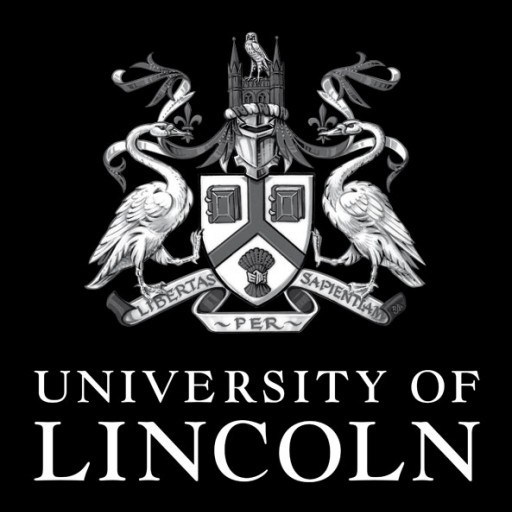Photos of university
The Bachelor of Science (BSc) in Biochemistry at Queen's University Belfast offers an in-depth exploration of the chemical processes and molecules that underpin all living organisms. This comprehensive programme is designed to provide students with a strong foundation in the core principles of biochemistry, including molecular biology, genetics, enzymology, and cell biology, alongside practical laboratory skills and research techniques. Throughout the course, students will have the opportunity to understand the structure, function, and interactions of biomolecules such as proteins, lipids, nucleic acids, and carbohydrates, and how these components contribute to health, disease, and biotechnology applications. The programme emphasizes developing critical thinking, problem-solving abilities, and scientific communication skills, preparing graduates for diverse careers in biomedical research, pharmaceuticals, biotechnology industries, and healthcare sectors. Students will benefit from access to state-of-the-art laboratories and research facilities, where they can engage in hands-on projects and experiments that reinforce theoretical knowledge. The curriculum includes a mix of lectures, tutorials, and laboratory classes, complemented by research-led teaching and interdisciplinary modules that highlight the relevance of biochemistry in broader biological and medical contexts. Furthermore, the programme offers opportunities for placements and exchanges, enabling students to gain real-world experience and develop professional networks. Graduates of this programme will be equipped with the scientific expertise and practical skills essential for contributing to advances in health sciences, medical research, and biotechnological innovation. With a focus on both foundational knowledge and cutting-edge research, the BSc in Biochemistry at Queen’s University Belfast is ideal for students passionate about understanding the molecular mechanisms of life and making a positive impact through scientific discovery.
Detailed Course Facts
Application deadline January 15 Tuition fee- EUR 4160 Year (EEA)
- EUR 13380 Year (Non-EEA)
England, Scotland and Wales £9,000; EU £3,575; International: £11,500
Start date September 2015 Duration full-time 36 months Languages Take an IELTS test- English
Course Content
Stage 1
Biochemistry
Genetics and Molecular Biology
Introductory Skills for Biosciences
Micro-organisms
Plus two modules in Chemistry
Stage 2
Biochemical Methods
Enzymology
Mammalian Biochemistry
Microbial Metabolism and Physiology
Molecular Genetics
Plus one other module, usually either Virology or Work Placement (3-year programme)
Throughout Stages 1 and 2, practical classes in Biochemistry reinforce and complement the theory and this gives students a sound foundation on which to build their final year.
Note: Biochemistry with Professional Studies students undertake a one-year, degree-related work placement between Stages 2 and 3.
Stage 3
In their final year all students carry out a two-module research project under the supervision of academic staff on a topic related to one of the many active areas of biochemistry research in the School. In addition, there are four taught modules:
Biochemical Basis of Disease
Biomolecular Structure
Cell Signalling
Genetic Manipulation and Biotechnology
English Language Requirements
IELTS band : 6.5
To study at this university, you have to speak English. We advice you to
take an IELTS test. More About IELTSRequirements
- A-level BBB including Chemistry and at least one from Biology (preferred), Mathematics or Physics + GCSE Biology or Double Award Science + GCSE Mathematics.Note: AS Biology grade C would be acceptable in lieu of A-level Biology.
- Irish Leaving Certificate B2B2B2B2CC/B2B2B2B2B2 including Higher Level grade B2 in Chemistry and at least one from Biology (preferred), Maths or Physics + if not offered at Higher Level then Ordinary Level grade C in Biology + if not offered at Higher Level then Ordinary Level grade C in Mathematics.
Work Experience
No work experience is required.
Related Scholarships*
- Academic Excellence Scholarship
"The Academic Excellence Scholarship can provide up to a 50 % reduction in tuition per semester. These scholarships will be renewed if the student maintains superior academic performance during each semester of their 3-year Bachelor programme. The scholarship will be directly applied to the student’s tuition fees."
- Access Bursary
Bursary for UK students all subjects where the variable tuition fee rate is payable.
- Alumni Bursary
Alumni Bursary for UK Undergraduate students
* The scholarships shown on this page are suggestions first and foremost. They could be offered by other organisations than Queen's University Belfast.
Accreditation
The degree conforms to the Biochemical Society's core curriculum in biochemistry. In addition, it is recognised by the Royal Society of Chemistry and graduates can apply for admission as an Associate Member (AMRSC).









